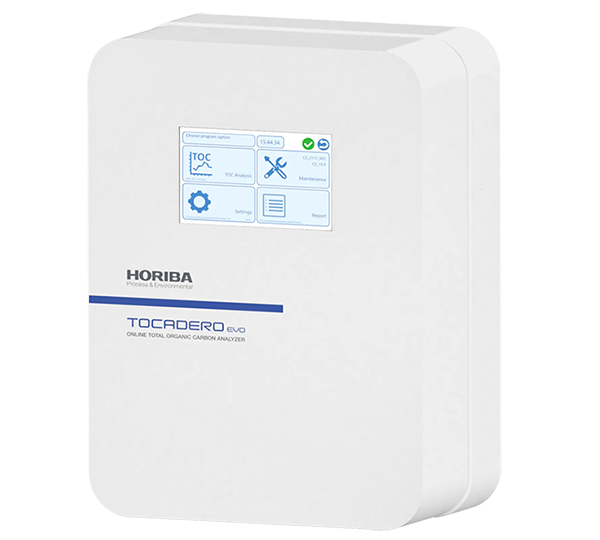Water analysis in the hydrogen industry

In the hydrogen industry, water quality monitoring plays a crucial role in the safety, efficiency and quality of production. Water is used in various stages of the hydrogen production process, be it in water treatment, electrolysis or other processes. It is therefore essential to continuously monitor the quality of the water in order to detect potential impurities or faults at an early stage and take appropriate action.
Overall, TOC measurement technology offers numerous benefits for companies in the hydrogen industry by improving process safety, ensuring product quality and increasing production efficiency. By continuously monitoring and analysing the organic carbon content in water, companies can identify potential problems at an early stage and take proactive measures to optimize operations and minimize downtime.
Serviceliste
-
Focus on organic contaminants: TOC measurement technology for analyzing water qualityListenelement 1
The Total Organic Carbon (TOC) measurement technique has proven to be an extremely effective tool for monitoring and analyzing organic contaminants in water. TOC refers to the amount of organic carbon in a water sample, which can come from organic compounds such as hydrocarbons, fats, oils and other organic substances. These impurities can not only affect the efficiency of water treatment and electrolysis, but can also affect the quality of the end product and reduce the life of the equipment.
-
Precise water analysis with TOC measurement technology: protecting system integrity
Accurate water analysis is critical to ensure water quality and protect plant integrity. TOC measurement technology provides a reliable method of continuously monitoring the organic carbon content in water. This enables operators to identify potential problems at an early stage and take proactive measures to prevent interruption to the production process.
-
TOC measurement technology for process automation and online monitoring
One of the main advantages of TOC measurement technology is its ability to automate processes and monitor online. By integrating TOC monitoring systems into production lines, companies can automate the monitoring process and obtain real-time data on the TOC content in the water. This enables continuous monitoring and control of the process, resulting in improved process efficiency and stability. In addition, online monitoring enables immediate detection of deviations or disturbances in the process, allowing for faster response and problem solving.
-
Quality control in the hydrogen industry with TOC measurement technology
Quality control is another important aspect in the hydrogen industry, as the quality of the hydrogen produced directly affects the performance and safety of applications such as fuel cells, refineries or chemical processes. TOC measurement technology enables precise control of water quality by effectively monitoring and removing organic impurities. This helps to improve product quality and ensure that it meets the required standards.
-
Early detection of potential problems through predictive maintenance
TOC measurement technology supports predictive maintenance strategies by providing early warning of potential problems that could lead to breakdowns or malfunctions. By continuously monitoring the TOC content in the water, operators can plan and carry out preventive maintenance measures to minimize wear and tear on system components and extend the service life of the systems.
-
Communication interfaces and data integration
The integration of state-of-the-art communication interfaces into the TOC monitoring systems enables operators to seamlessly collect, analyse and visualize the data. This makes it easier to monitor and control processes in real time and enables effective collaboration between different departments and external partners.
The Tocadero EVO is a versatile TOC measuring device that has been specially developed for monitoring organic contamination in ultrapure and pure water. With its innovative UV oxidation and differential conductivity measurement, this TOC analyzer is ideal for the pharmaceutical industry, microelectronics, power plants, electrolysis, and chemical production.


